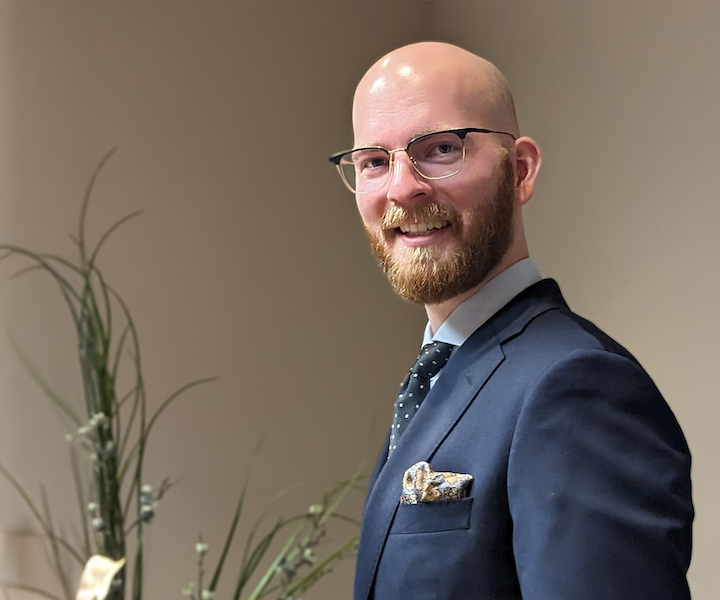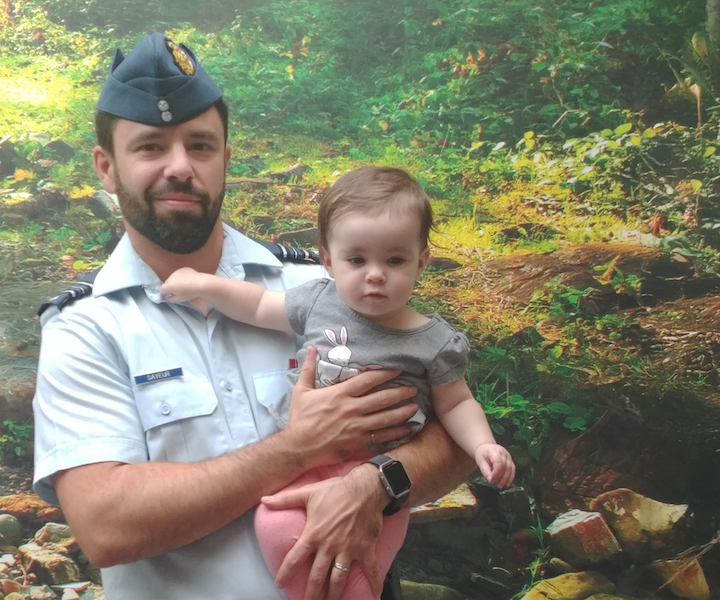Of the wide array of highly skilled physicians trained by the Faculty of Medicine each year, a select few will go on to provide care to Canada’s military personnel across land, air and sea.
Through the Military Medical Training Program (MMTP), serving regular force members of the Canadian Armed Forces (CAF) can apply to medical schools, including the University of Ottawa Faculty of Medicine. The Faculty reserves seats yearly in the Undergraduate Medical Education Program, and in the entry-level Family Medicine Postgraduate Medical Education residency programs, for these applicants. The MMTP reserved seats are supernumerary seats that are subsidized by the Department of National Defence (DND). In addition, some students join the Forces after they have already been admitted to the MD program under the Medical Officer Training Plan.
“Our soldiers, sailors, airmen and airwomen must be confident that, if injured at home during training or overseas on operations, there are highly qualified Medical Officers readily available to provide them with the urgent care they require,” says Tina Lipcsey, attraction coordinator at the Canadian Forces Health Services headquarters.
“Since the CAF does not have its own medical school, we rely on Canadian civilian educational institutions to produce highly educated and skilled physicians to care for CAF members," she says. “Canadian Forces Health Services Group is grateful for the continued support received from the University of Ottawa Faculty of Medicine in training future Medical Officers for service to our country.”
Two MD students from the uOttawa Faculty of Medicine share their motivations for becoming physicians to serve the CAF, as well as what—and whom—they are reflecting on this Remembrance Day.
Captain Joshua Erion, MD 2028
Branch: Army
I joined the Canadian Armed Forces (CAF) in 2011, when I was 17. I became a soldier as a way of doing something challenging, that was bigger than myself, and most importantly as a way of providing support to a country that I feel very fortunate to be a part of. I’ve been employed in a multitude of roles, have travelled to several countries for military exercises and deployments, and made some very dear lifelong friends along the way.
Pursuing medicine at the University of Ottawa allows me to embark on a second career in the military, maintaining my service to Canada while also now providing a critical service to the soldiers I serve with. I will be employed as a Medical Officer (military physician), tending to the health care needs of soldiers who defend Canada’s interests at home and abroad. I look forward to having a direct positive impact on their quality of life.
For my specialty, I will pursue family medicine—I enjoy the flexibility of having a wide base of knowledge; it’s also a keystone in primary and preventative care and is badly needed in Canadian health care.
On Remembrance Day, I often reflect on the enormity of human sacrifice that has come before us, over generations, to try and shape the best world possible for today. More personally, I always think specifically of Bombardier Patrick Labrie, who lost his life in 2019 during a training exercise. He was 28 at the time, from Buckingham, Quebec, just across the river from Ottawa. He was a great soldier and is dearly missed by his family and friends.

“I will be … tending to the health care needs of soldiers who defend Canada’s interests at home and abroad. I look forward to having a direct positive impact on their quality of life.”
Captain Joshua Erion
— MD 2028
Captain Mathieu Sayeur, MD 2025
Branch: Royal Canadian Air Force
I have been in the CAF for 20 years. Before transitioning to med school, I was a Major and I was working as an Aerospace Engineer. I love to challenge myself, and I’ve always been passionate about alleviating suffering and trying to make the world a better place.
I strongly believe that the success of the Canadian Armed Forces is based on how well we take care of its members, and I want to do my part in caring for them. Training at uOttawa matches this aspiration as they value multiculturalism, bilingualism, compassion, and the experience of the human condition as an integral part of their learning environment, creating a community centred on the promotion of well-being.
Family medicine was the obvious choice for my career. I aspire to provide compassionate patient-centred care focusing on the biopsychosocial approach to medicine, as serving in the military creates complex situations for members which are without a doubt significant contributors to their health and well-being.
On Remembrance Day, I reflect on the meaning of sacrifice. Some are obvious, such as loss of life, while other sacrifices are less obvious but significant sources of suffering, such as loss of physical and mental health, being unavailable for your loved ones, or serving others before self. To me, it is a time to remind myself that these sacrifices are worth it to uphold and secure our Canadian values of equity, diversity, justice, peace, security, and respect, amongst others.

“I want to do my part in caring for [members of the CAF]. I’ve always been passionate about alleviating suffering and trying to make the world a better place.”
Captain Mathieu Sayeur
— MD 2025
| About the Military Medical Training Program (MMTP): |
|
| Support the Faculty of Medicine today! Use the designation field on our online donation form to support the 'Student Assistance' fund. |
